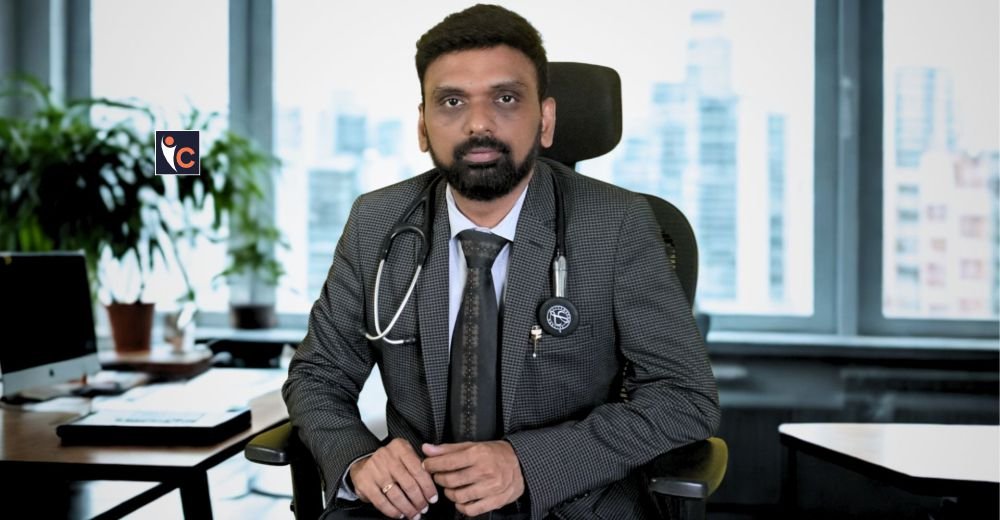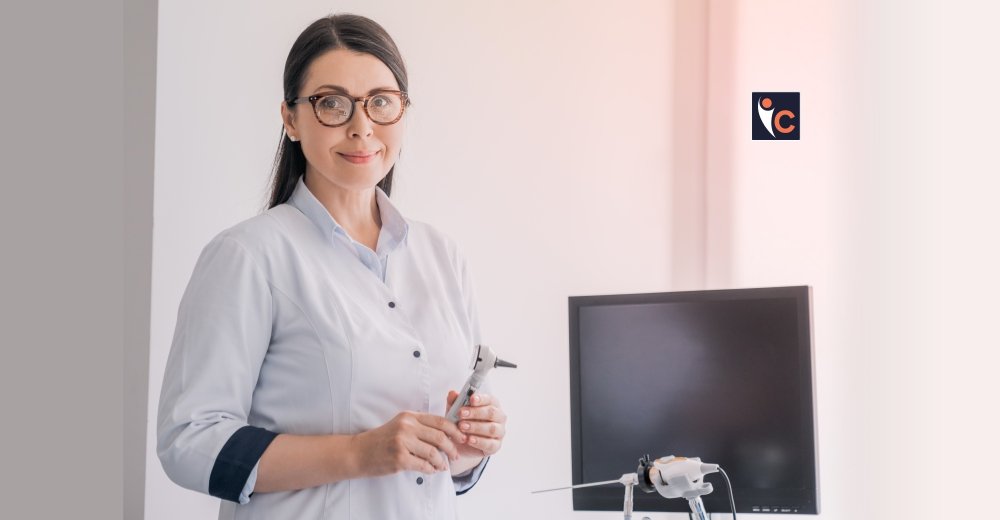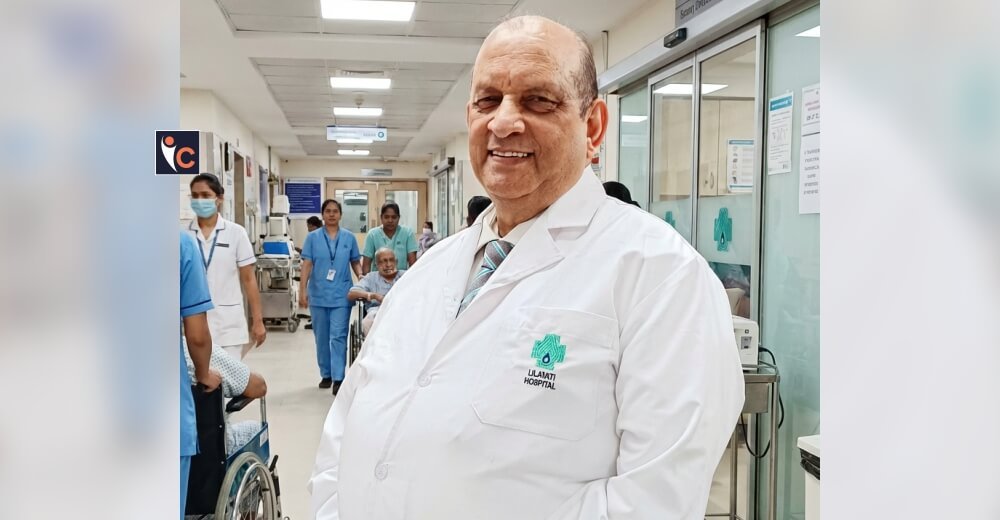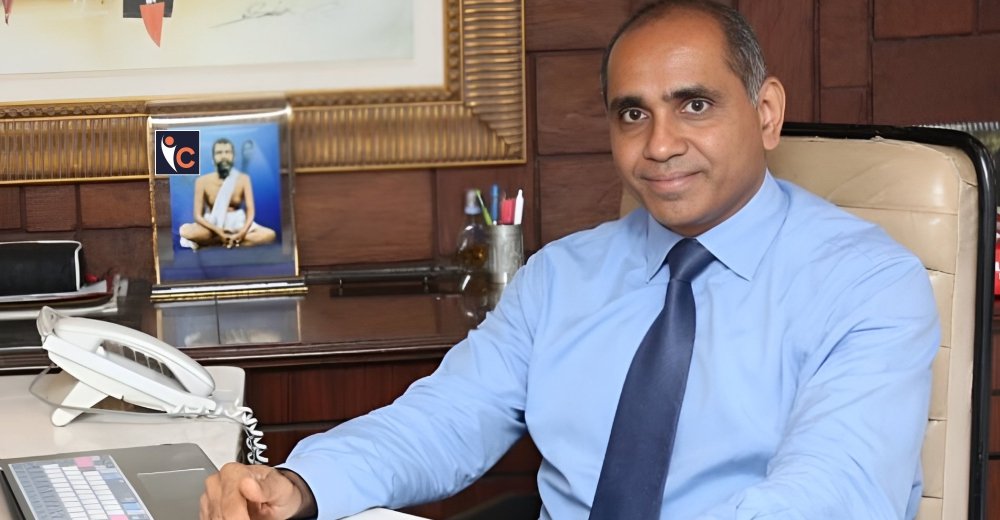Every year, millions of people in rural India face life-threatening medical conditions with no access to the critical care they desperately need. In these areas, the difference between life and death often comes down to one thing: access. Dr. Raja Amarnath, Founder and Managing Director of CIPACA, recognized this gap and took it upon himself to change the face of rural healthcare forever. What began as a personal goal to battle healthcare imbalances in rural locations developed into an innovative approach that preserves many lives across the nation.
Dr. Raja Amarnath’s inspiring story reflects his persistent dedication to outstanding medical services which directly target areas that require urgent medical assistance. He entered medical practice from an atypical situation because medicine did not run in his bloodline as his family lacked medical experience through generations. A mix of his mother’s support and his personal commitment toward duty pushed him toward medical school where he found his future career path in critical care medicine. He now leads India’s ICU care industry and is transforming critical care delivery approaches for rural populations.
From a small town in South Andhra Pradesh to becoming one of the most influential figures in Indian healthcare, Dr. Raja Amarnath’s career path reflects his determination to make a meaningful difference. Through CIPACA, he has taken on the monumental task of bridging the gap between urban and rural healthcare. This is his story—a journey driven by a passion to save lives and to create sustainable solutions for a nation in need.
Let’s dive into Dr. Raja Amarnath’s vision for a future where no life is lost due to lack of affordable ICU care!
A Life Shaped by Challenges
Dr. Raja Amarnath’s path to becoming a doctor was not paved with ease. Coming from a middle-class family in Naidupeta, a small town in South Andhra Pradesh, he was aware of the challenges people faced when accessing healthcare. “I grew up in a town where the nearest medical facilities were miles away. For any major health issue, people had to travel to larger cities like Tirupati or Chennai,” he recalls. His personal experience with his mother’s health crisis further cemented his resolve. “We had to sell property to afford my mother’s medical expenses. The emotional and financial toll it took on our family made me realize just how critical healthcare access truly is.”
After completing his MBBS in Tirupati, Dr. Raja Amarnath went on to specialize MD in pulmonology in Vijayawada, followed by a DM in critical care from Chennai. He also pursued further experience through EDIC & FRCP Edinburg. His training took him to the UK, where he gained his expertise in advanced critical care before returning to India. He joined one of Chennai’s most renowned hospitals as a consultant, where he began his professional journey. Yet, it was his early exposure to the healthcare struggles of rural families that truly ignited his passion to make a difference.
The Birth of CIPACA
As Dr. Raja Amarnath grew in his career, he became acutely aware of the gap in critical care services available to rural populations. “I realized that even for a simple emergency, people had to travel long distances to reach a hospital that could provide adequate care. The lack of critical care facilities in rural India was staggering,” he reflects. He saw this challenge not only as a healthcare issue but also as a socioeconomic one. “The reality was that people couldn’t afford to go to city hospitals, and those who did often faced delays that cost them their lives.”
Initially, he tried to provide ICU support through telemedicine, offering guidance to rural hospitals. However, he quickly realized that telemedicine alone wasn’t enough. “The real issue wasn’t just about providing advice; it was about having the right team on the ground to execute that advice. The lack of a trained team, the right equipment, and proper protocols led to failure.” This realization became the driving force behind the founding of CIPACA. With the support of his colleagues and a clear vision in mind, Dr. Raja Amarnath set out to create a model that could provide sustainable, high-quality ICU services in rural areas.
“Critical care isn’t just about giving guidance; it’s about building systems, teams, and infrastructure. That’s when CIPACA was born; out of a need to solve the real problems people face in rural healthcare,” he shares.
Overcoming the Challenges of Rural Healthcare
Starting a critical care business in rural India was no easy feat. As Dr. Raja Amarnath notes, “Rural healthcare is a whole different ballgame. In cities, everything is available—the infrastructure, the teams, the equipment. But in rural areas, these resources are often nonexistent.” Despite these challenges, CIPACA pushed forward, setting up ICU units in remote areas where they had never existed before.
The company’s model involved sending teams of doctors, nurses, and healthcare workers to rural hospitals, working round the clock to provide care. “One of our major challenges was ensuring that the teams had the capability to handle high-pressure situations. We had to ensure that the staff had the expertise and training to manage life-and-death situations, often with limited resources,” Dr. Raja Amarnath explains. “But the real challenge was ensuring that the hospitals themselves had the right support. Many of them didn’t have proper equipment, and it was up to us to bring in the right resources.”
Despite these hurdles, CIPACA was able to establish its first ICU units in smaller towns and taluks, where they had never been before. “Our core mission is simple—every taluk should have an ICU,” Dr. Raja Amarnath affirms. “In India, where millions live in rural areas, having an ICU within a 30-minute radius can mean the difference between life and death.”
Changing the Healthcare Landscape in Rural India
CIPACA’s impact has been nothing short of transformative. By offering high-quality ICU services at a fraction of the cost of city hospitals, the company has brought lifesaving care within reach of communities that previously had none. “In a city, ICU services can cost anywhere between 60,000 to 80,000 rupees per day. But with our model, we can provide the same level of care for just 10,000 to 20,000 rupees,” says Dr. Raja Amarnath. “The key is to make this care affordable and accessible to the people who need it the most.”
CIPACA’s network of ICUs now spans over 20 places across India, each serving a population of 5 lakh people who can reach ICU within 30 mins of time (Golden hour) saving hundreds of lives every day. “If we hadn’t been there, at least 50% of the people we’ve treated would have died,” he states. This staggering statistic is a witness to the hospital’s success. More than 1 lakh patients have been treated under their care, with survival rates consistently exceeding 90%. Dr. Raja Amarnath credits this success to a combination of timely interventions, dedicated healthcare teams, and the implementation of stringent processes. “We focus on the golden hour. If patients can be treated within the first 60 minutes of a medical event, the chances of survival are exponentially higher.”
What makes CIPACA’s approach unique is its emphasis on community involvement. “We have created a program called CIPACA Friends, where we train young people in rural communities to handle medical emergencies until the ambulance arrives,” he says. “These are the first responders, and they play a crucial role in saving lives before professional medical help arrives.”
Fostering a Culture of Sincerity and Compassion
At CIPACA, Dr. Raja Amarnath believes that sincerity is at the heart of healthcare. “ICU care is like a warzone. Every day, we deal with life-and-death situations. For our team, it’s not just about the technical skills; it’s about the commitment to the patient. You have to treat every patient like they’re your family,” he says. This sincerity extends beyond medical care—it’s about being transparent with patients and their families, helping them navigate the toughest decisions during crises.
This approach has cultivated a deep sense of trust within the communities CIPACA serves. “Patients in rural areas tend to be more apprehensive because they are used to limited options,” he explains. “But when we treat them with respect, explain their treatment options, and show them the care they need, they open up and cooperate. This bond makes a significant difference in outcomes.”
CIPACA’s Legacy and Vision for the Future
Looking ahead, Dr. Raja Amarnath envisions CIPACA as more than just a healthcare provider. “We’re not in this business for profits. We’re here to address a critical need in our society,” he states. His long-term goal is to expand CIPACA’s services, bringing international-standard critical care to even the most remote areas of India. “The dream is to ensure that every Taluk has a Chennai level ICU, and that people don’t have to travel hours to get the medical attention they deserve,” he says.
CIPACA’s success has not gone unnoticed. The company has received numerous awards and recognition for its work in the rural healthcare sector, including being named the most socially responsible healthcare organization and the best innovative healthcare delivery provider. “What we’ve achieved in a short period is remarkable, but we’re just getting started,” Dr. Raja Amarnath concludes.
Empowering the Next Generation of Healthcare Leaders
In his advice to young doctors, Dr. Raja Amarnath encourages them to consider careers in rural critical care. “There’s a huge opportunity in rural healthcare. We’ve created a platform that provides all the necessary resources for doctors to succeed in these settings,” he says. CIPACA offers specialized training, mentorship, and career development to ensure that young doctors are well-equipped to handle the unique challenges of rural healthcare.
“Being an early mover in rural areas is an advantage for any doctor. Not only do you get to be part of a meaningful cause, but you also gain experience that will be invaluable in your career,” he adds.
CIPACA’s Franchise Model: A Lifeline for Small Hospitals
CIPACA’s innovative franchise model is redefining critical care accessibility for small and mid-sized hospitals across India. By providing a ready-to-deploy ICU setup complete with trained staff, tele-ICU support, and standardized clinical protocols, CIPACA enables hospitals in rural and semi-urban areas to deliver 24×7 world-class critical care. As Dr. Raja Amarnath, Managing Director of CIPACA, puts it: “Our mission is to ensure that no critically ill patient is denied timely care just because they live far from a metro city. Through our franchise model, we empower local hospitals to save lives and build trust within their communities.” This model not only improves patient survival and retention but also helps hospitals grow sustainably while bridging the long-standing urban-rural healthcare gap.
A Lasting Impact on Rural Healthcare
Dr. Raja Amarnath’s work through CIPACA has revolutionized healthcare in rural India. His innovative approach, dedication, and vision have not only saved thousands of lives but also inspired a movement to rethink how critical care can be delivered. “This is not just business. It’s a mission,” he emphasizes. CIPACA’s success proves that with the right vision, determination, and commitment to solving real-world problems, lasting change is not only possible, but it can be achieved.
The CIPACA model under Dr. Raja Amarnath proves that uniting urban and rural healthcare services produces a world where no one faces exclusion from essential medical care. The company’s mission to enable rural India access to affordable quality critical care makes clear how health leaders achieve significant results by addressing essential healthcare problems. CIPACA serves as both a healthcare organization and a social initiative which transformed our understanding of rural healthcare delivery in India.





